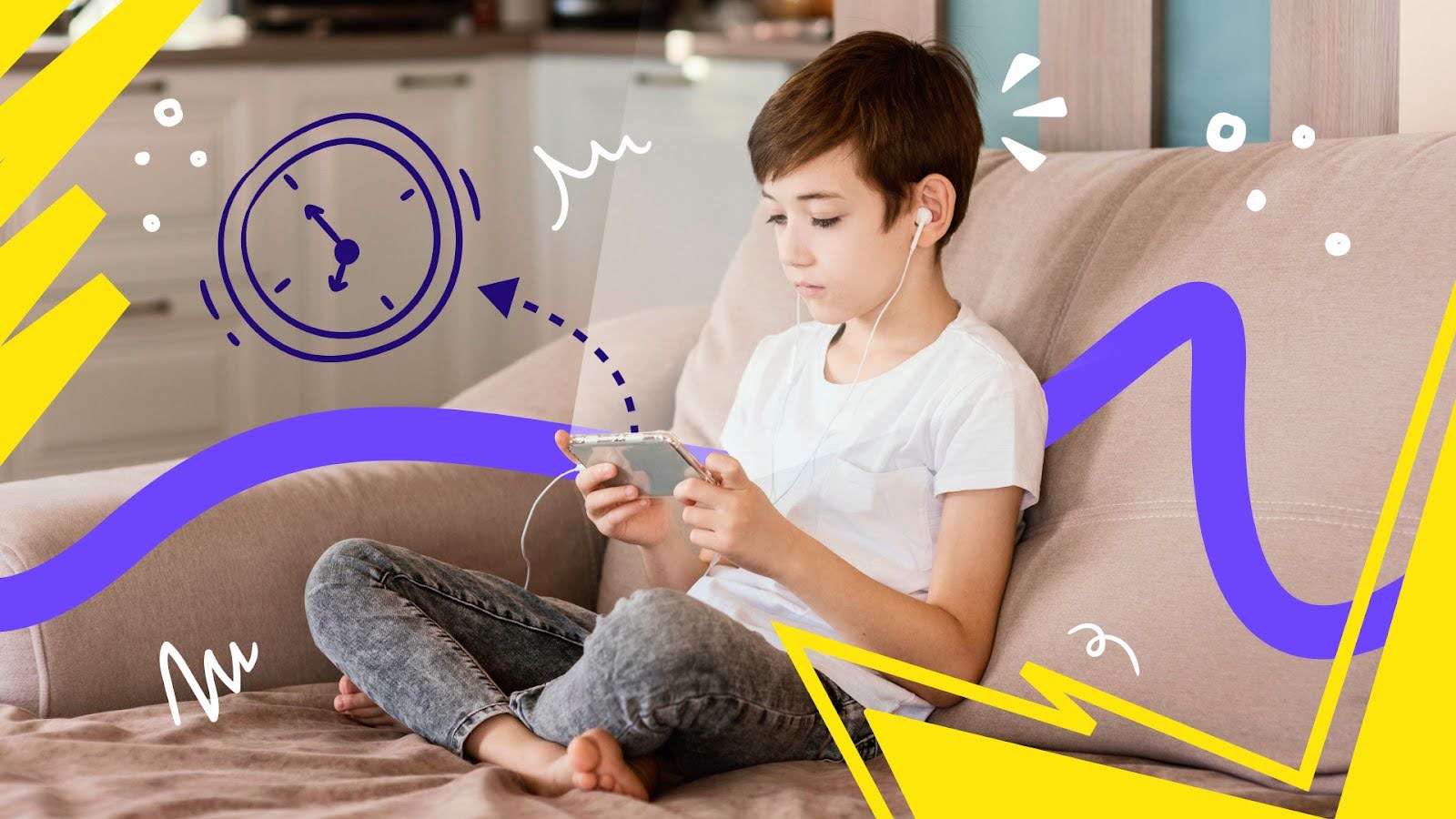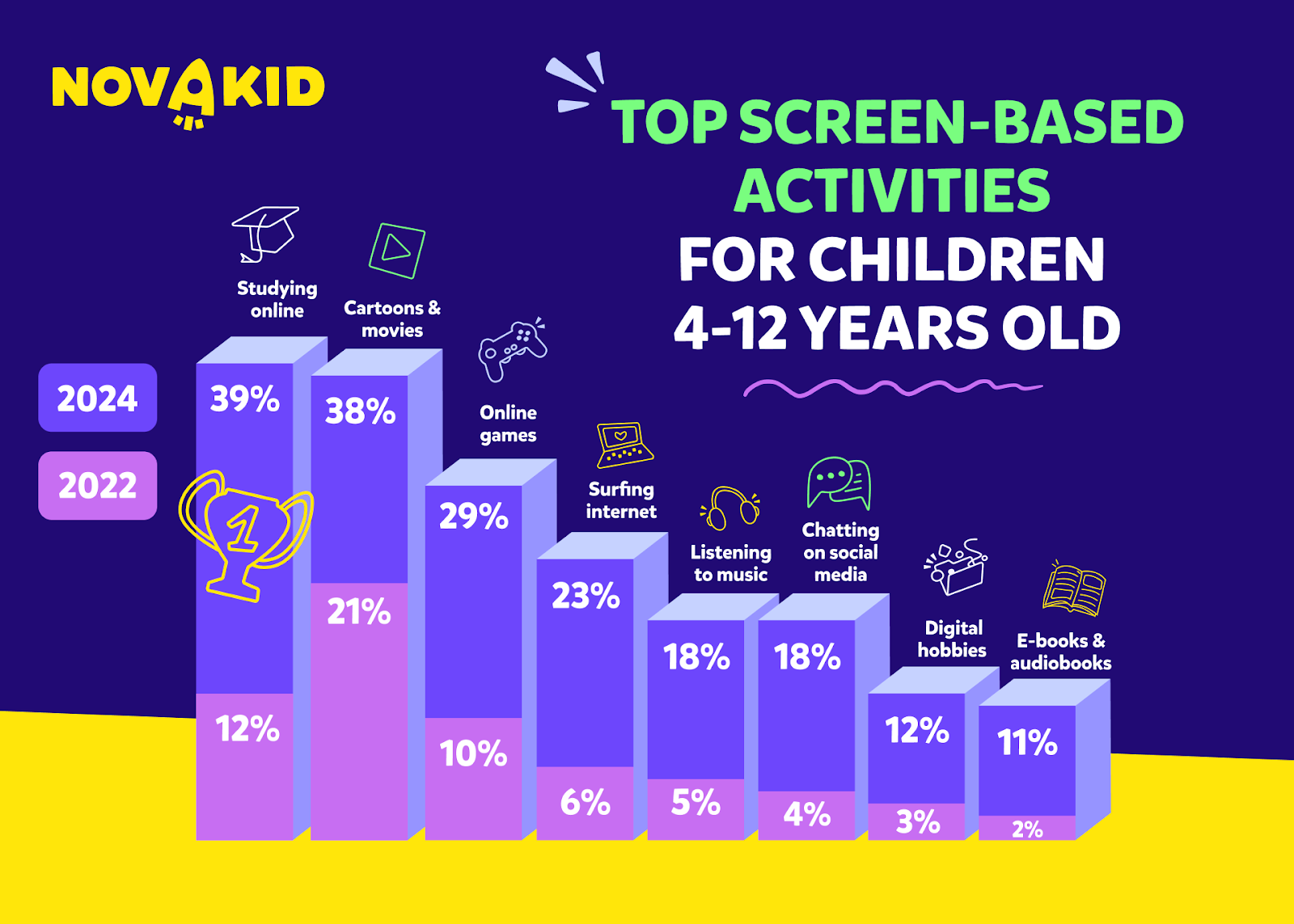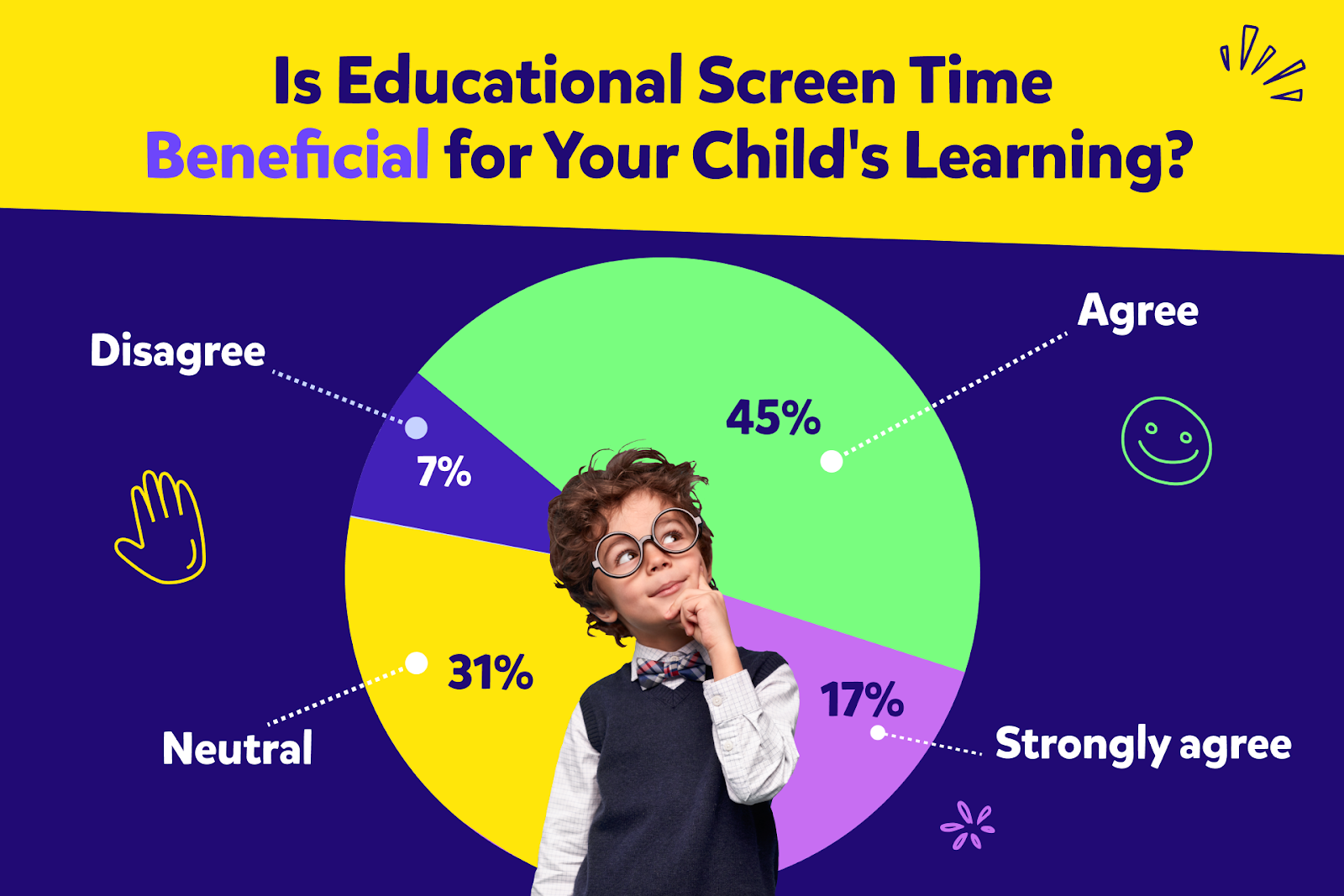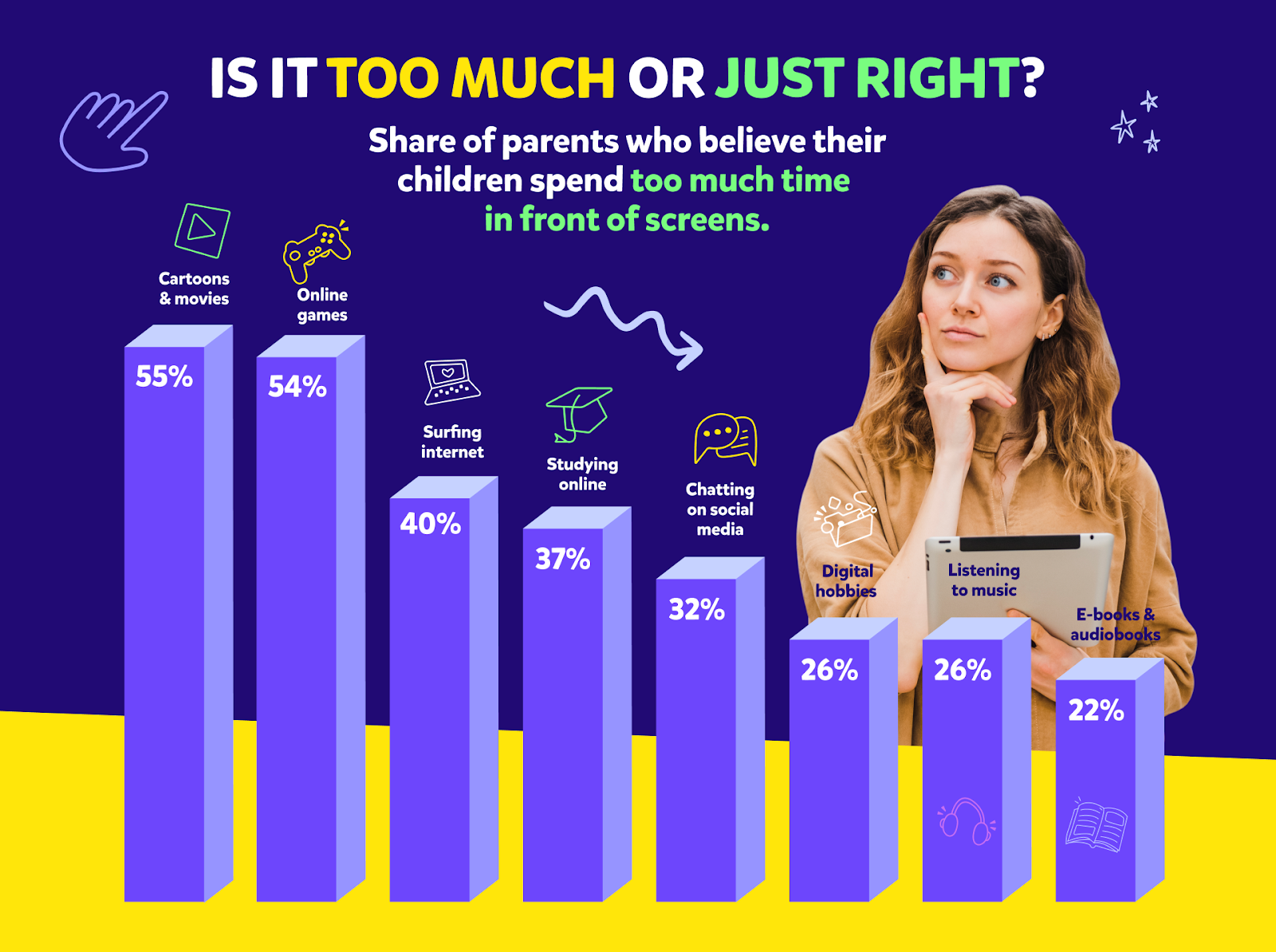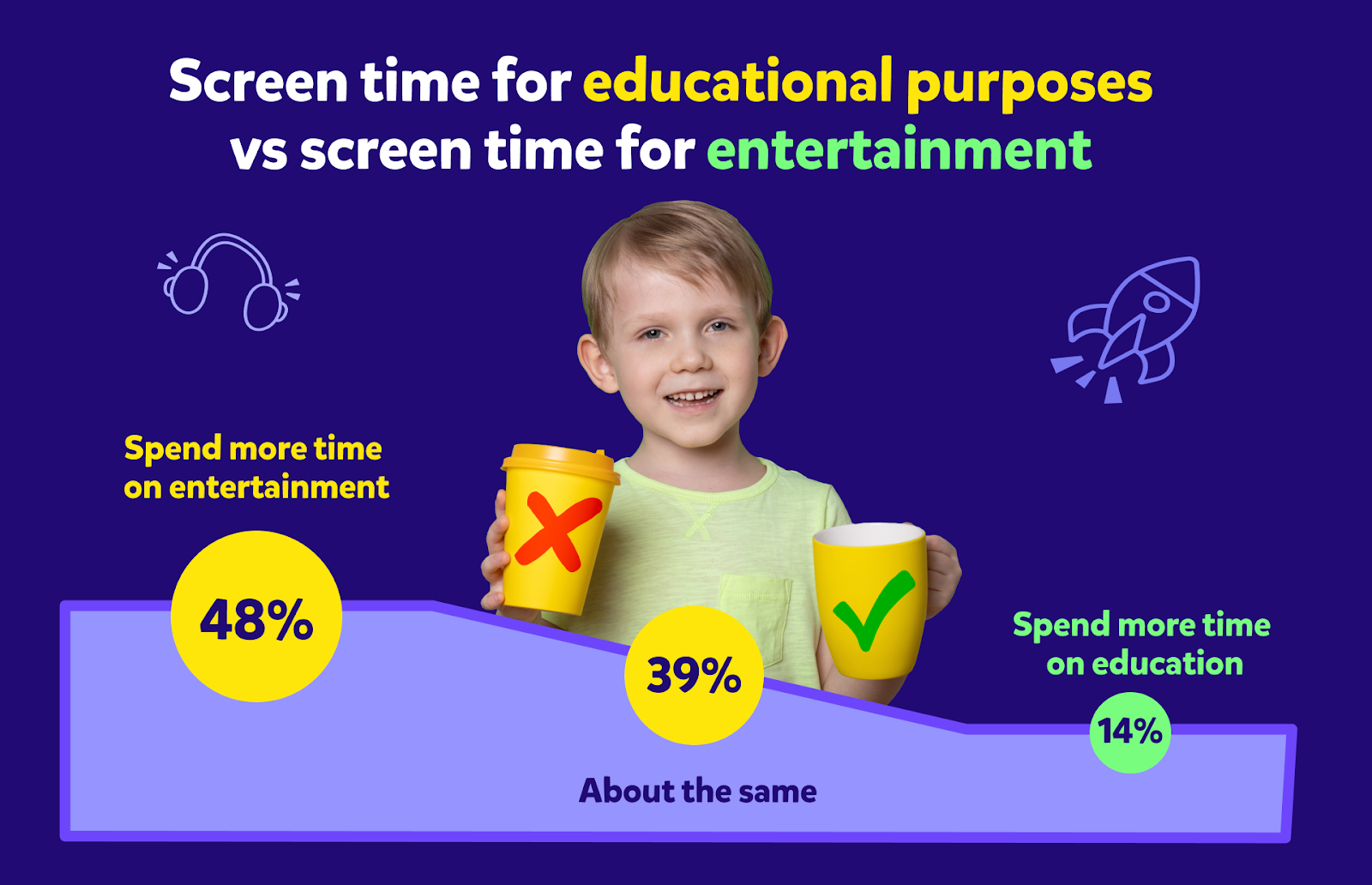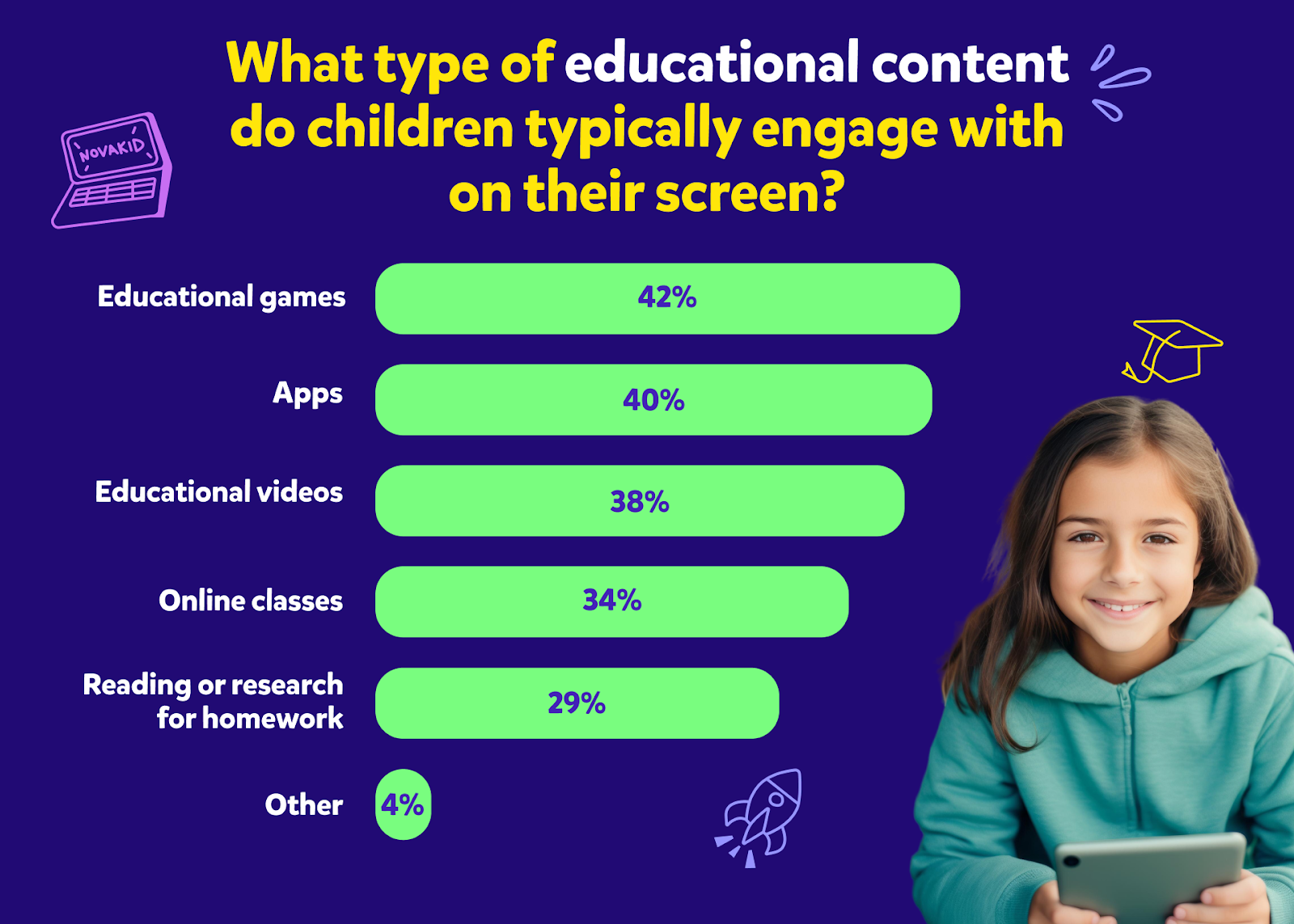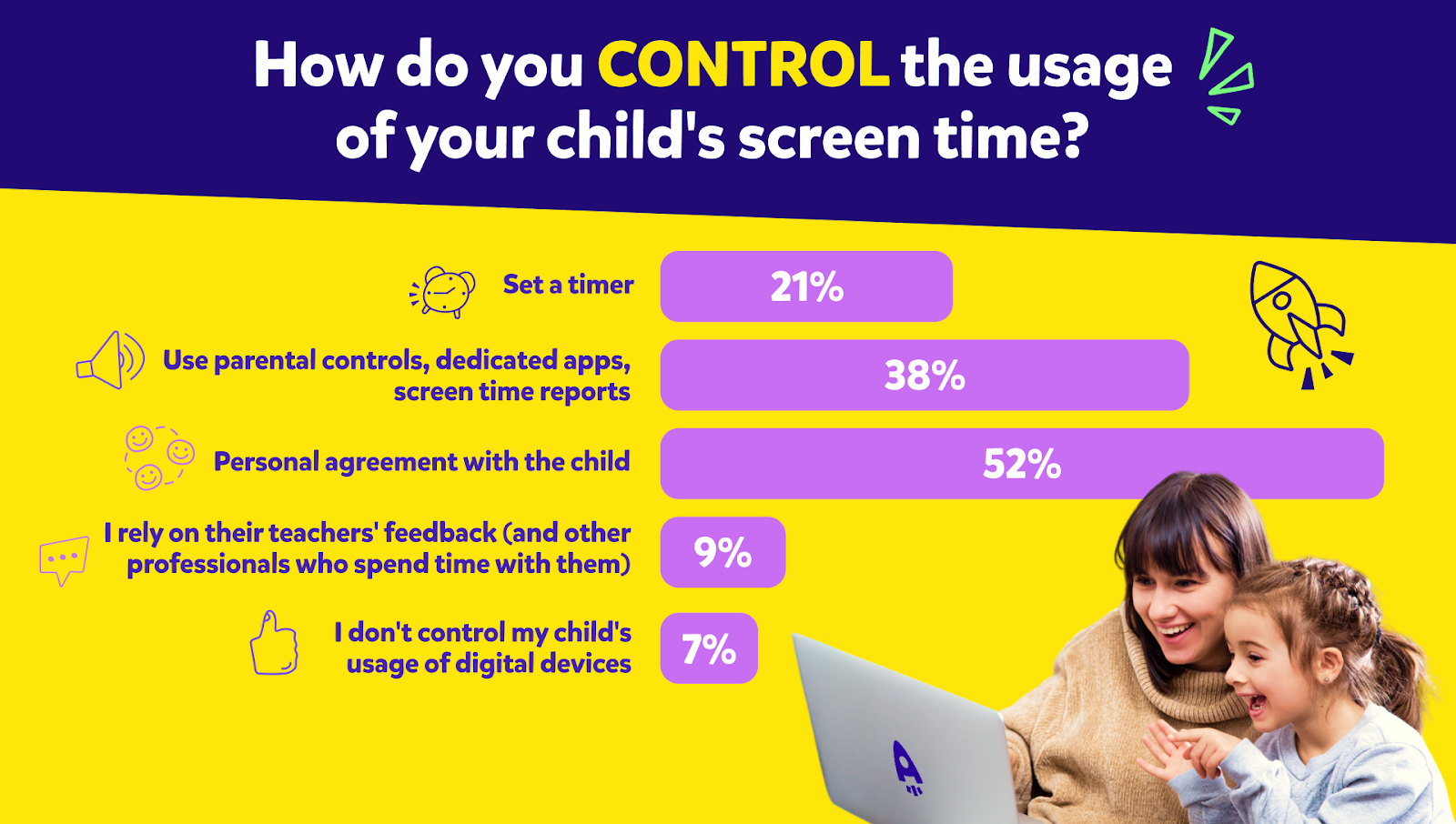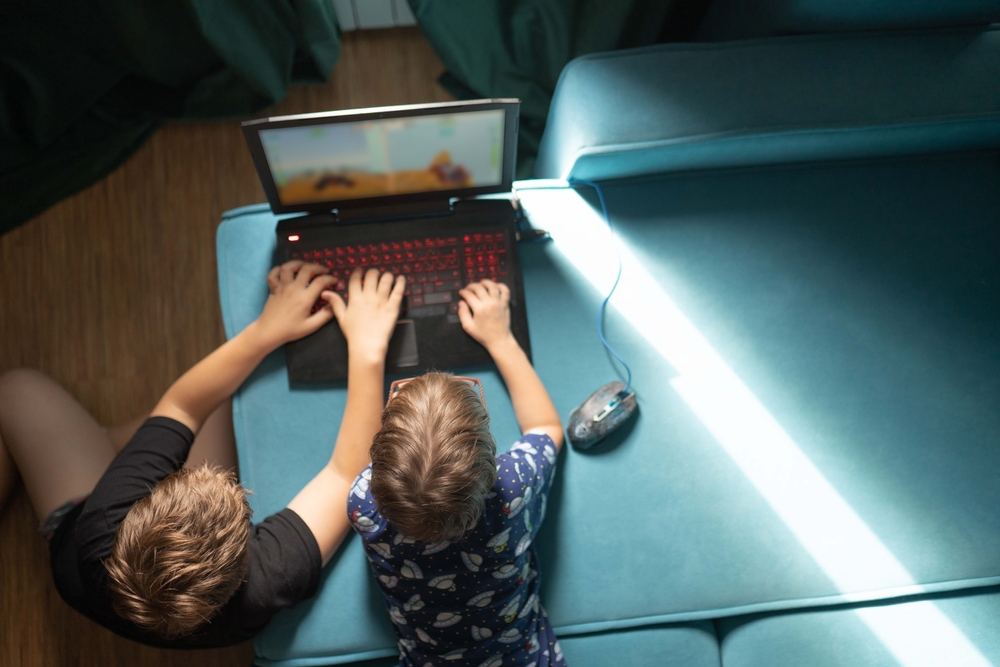- Online learning ranks at the top of the list.
- Entertainment Surpasses Education, but the key lies in EDUTAINMENT
- Online games – are they becoming educational?
- Trust or control – the pros and cons of managing the effects of screen time
Novakid’s screen time survey highlights changes in children’s screen usage patterns
Novakid has unveiled the results of its latest, in-depth screen time survey, revealing dramatic shifts in how children aged 4-12 are using screens, the effect of screen time on children, and showing interesting transformations in just two years since the first survey in 2022.
The survey analysed data from more than 5,000 families with children between four and 12 years old in 15 countries, comparing their screen time habits in 2022 with those in 2024. Parents were asked about the amount of time their children spend in front of screens for various activities, their perspectives on this screen time, and strategies to manage it effectively.
Online learning ranks at the top of the list.
Among the top screen activities—online learning, cartoons, and e-games—the most striking finding was the surge in screen time dedicated to education, which has increased across every surveyed country in just two years. In 2022, most parents (62%) claimed that their children spent less than two hours weekly on online learning across the metrics of none and 1-2 hours weekly. Only 12% spent more than six hours a week. However, by 2024, 39% of families reported their kids were spending more than six hours weekly on educational screen time. Novakid found that children now spend an average of 4-5 hours per week in front of screens.
The growing use of screens for educational purposes suggests a positive trend toward using technology for learning. Novakid, as a pioneer in teaching English as a second language online to children aged four to 12, is experiencing stable growth in customers and is always adding online classes with native speakers to their regular school programmes. The company has now grown to serve more than 550,000 customers in 2024.
“We’re dedicated to providing a platform that helps kids make the most of their screen time for learning and growth,” said Max Azarov, CEO and co-founder at Novakid. “A mix of learning games, an entertaining self-practice platform, online lessons, and group speaking classes is how the next generation of young English learners will engage with the language”.
The survey reveals that parents are less worried about screen time for educational purposes because they understand how valuable technology can be for learning. Instead, their concerns are around the impact of screens when it comes to online games and videos that might expose kids to inappropriate content and distract them from their studies. This growing trend highlights the importance of parental monitoring of online screen usage and child development.

Entertainment Surpasses Education, but the key lies in EDUTAINMENT
Many parents are quick to blame gadgets for hindering child development, but experts believe there is value in entertainment when it is connected to education, saying it can spark creativity and boost motivation.
Parents in the study are leaning more towards the benefit of screen time for their children when it forms part of their education. Just under half of parents (45%) believe online learning benefits a child’s learning.
“We see a future focused on fun educational content and making learning like a game,” says Max Azarov. “Novakid’s program uses games, stories, comics, videos, and songs, so kids can learn without even noticing. Plus, it’s great for parents because they don’t have to worry about getting their kids motivated!”
Online games - are they becoming educational?
Online games are the most popular activity in this category because of their potential to blend entertainment and education.
The Novakid survey found that a significant percentage – 42% of time spent – of educational screen time comes from educational games. In comparison, only 34% of students’ screen time is spent on online classes, and 29% on reading and research for homework. This shows that more educators are turning to games that offer an intelligent mix of learning and fun, something that traditional school methods often struggle to do. Pointing to a positive impact of screens on kids if used correctly.
“There is huge potential in developing an app for educational games where you can take online classes or do homework together with your teacher, or broaden your horizons by watching live educational videos and participating in open speaking classes where you discuss topics that matter to your child or relate to other subjects such as Geography or Robotics,” says Max Azarov.
Trust or control - the pros and cons of managing the effects of screen time
Parents are monitoring the What and How of the content their children engage with – what type, and for how long. More than half of the parents surveyed say that having a personal agreement with their child works best. Using a timer or an app is also a popular choice.
While the benefits of online learning are clear, Azarov encourages parents to monitor online activity and be conscious of online safety so that the impact of screen time on their children is positive and empowering, rather than negative and challenging.






























